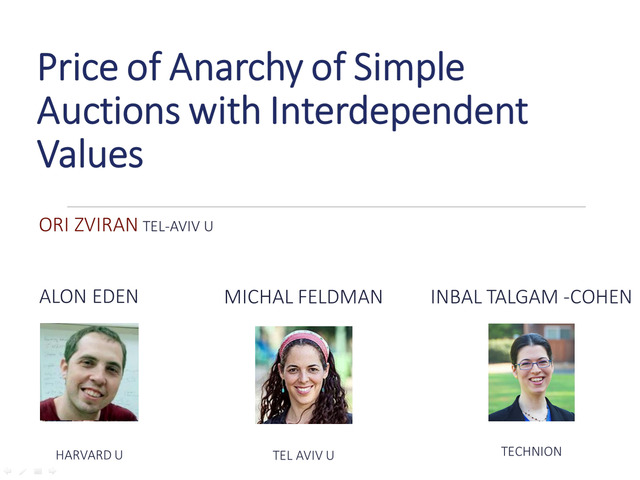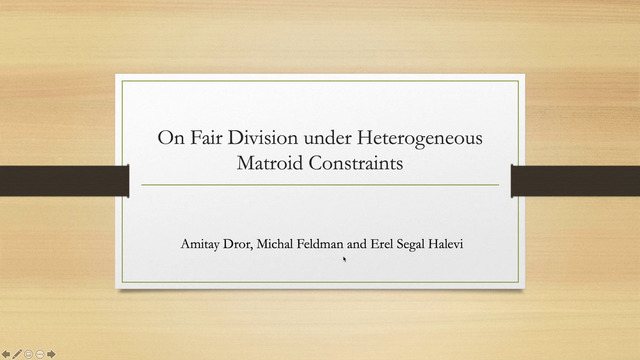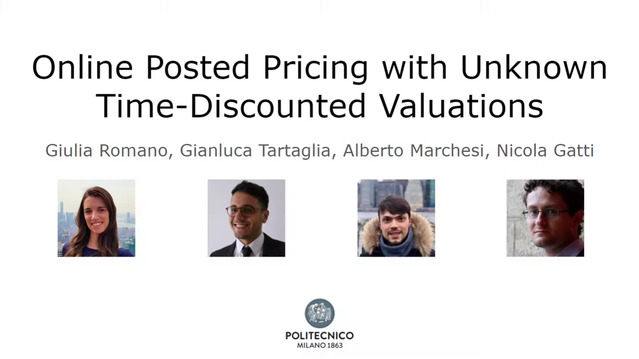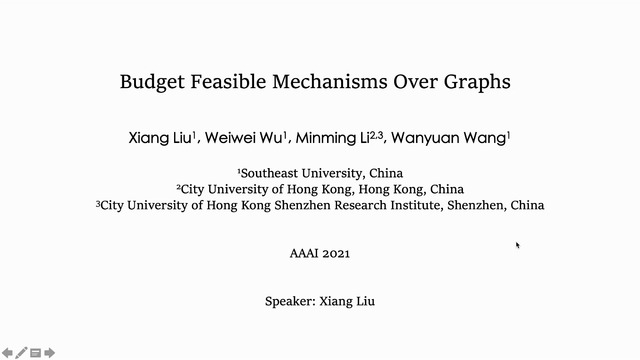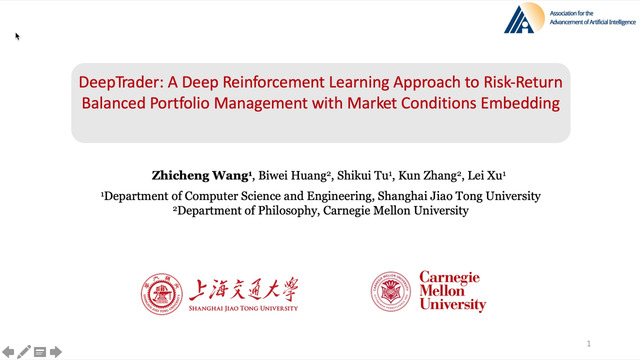Abstract:
We expand the literature on the price of anarchy (PoA) of simultaneous item auctions by considering settings with correlated values; we do this via the fundamental economic model of interdependent values (IDV). It is well-known that in multi-item settings with private values, correlated values can lead to bad PoA, which can be polynomially large in the number of agents~n. In the more general model of IDV, we show that the PoA can be polynomially large even in single-item settings. On the positive side, we identify a natural condition on information dispersion in the market, which enables good PoA guarantees. Under this condition, we show that for single-item settings, the PoA of standard mechanisms degrades gracefully. For settings with multiple items we show a separation between two domains: If there are more buyers, we devise a new simultaneous item auction with good PoA, under limited information asymmetry. To the best of our knowledge, this is the first positive PoA result for correlated values in multi-item settings. The main technical difficulty in establishing this result is that the standard tool for establishing PoA results --- the smoothness framework --- is unsuitable for IDV settings, and so we must introduce new techniques to address the unique challenges imposed by such settings. In the domain of more items, we establish impossibility results even for surprisingly simple scenarios.
